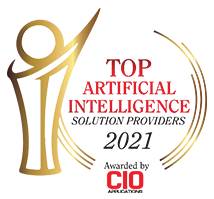
Empowering the Food Supply Chain: Blockchain's Role in Automatic Cost Calculation and Settlement
Imagine you’re in a grocery store, reaching for a crisp, red apple. That apple has traveled a long journey before ending up in your hand. It went from the farmer, to the packer, through several transport stages, and finally to the grocery store shelf. Every stage has its costs, complexities, and potential for errors. The good news is that emerging technologies like blockchain are reshaping this journey, promising more efficiency and accuracy. A key feature of this revolution is automatic cost calculation and settlement.
Understanding Automatic Cost Calculation and Settlement
First, let’s dive into what automatic cost calculation and settlement mean. In the context of supply chains, cost calculation refers to the process of determining all the costs associated with transporting goods from one point to another. These costs could include fuel, labor, taxes, insurance, depreciation, and more.
Typically, these calculations are manual, time-consuming, and susceptible to errors. Automating this process means using technology to calculate these costs automatically, increasing accuracy, and reducing the time required.
Settlement refers to the actual payment of these costs. Again, manual methods can be slow and prone to errors or even fraud. Automatic settlement means the use of technology to trigger payments as soon as the corresponding service is rendered, eliminating the need for time-consuming invoice reconciliation and potential disputes.
The Power of Blockchain
But where does blockchain come into play? As a distributed ledger technology, blockchain offers a secure, transparent, and tamper-proof platform for recording transactions. It provides an incorruptible and auditable trail of all activities in a supply chain, from production to delivery. Moreover, with the use of smart contracts – self-executing contracts with the terms of the agreement directly written into code – blockchain can trigger automatic cost calculation and settlement.
When a shipment reaches a predetermined location, for example, the smart contract could automatically calculate the cost based on agreed-upon rates and instantly trigger a payment from the buyer to the service provider. This can happen without human intervention, ensuring the process is fast, accurate, and free from manipulation.
Enhancing Efficiency and Velocity in the Food Supply Chain
By powering automatic cost calculation and settlement, blockchain can significantly improve the efficiency and velocity of the food supply chain. First, by automating these processes, companies can save the time and resources that would otherwise be spent on manual calculations and reconciliations.
Second, instantaneous settlement eliminates the usual delays associated with traditional payment methods. Service providers no longer have to wait days or weeks for their money, which can improve cash flow and allow them to operate more efficiently.
Furthermore, the increased velocity can lead to fresher, better quality food reaching the consumers. With the help of blockchain, the time from farm to table can be significantly reduced, ensuring that perishable products like fruits, vegetables, or dairy products are delivered to consumers in their prime.
Reducing Errors in the Supply Chain
In addition to the speed and efficiency benefits, blockchain’s role in automatic cost calculation and settlement can also reduce errors in the food supply chain. As mentioned earlier, manual calculations are prone to errors. With blockchain, these errors can be virtually eliminated, ensuring accurate cost calculation and payment.
Moreover, with the transparency of blockchain, all parties involved in the supply chain can have a clear and accurate understanding of the costs involved. This can prevent disputes over payments and reduce the potential for fraud.
The immutable nature of blockchain also ensures that once a record has been added, it cannot be changed. This makes it easier to trace and rectify any errors, reducing the chances of costly and reputation-damaging recalls.
Final Thoughts
From a simple apple to the most complex supply chains, blockchain technology is showing enormous potential to streamline processes, increase efficiency, and reduce errors. Automatic cost calculation and settlement, powered by blockchain, can bring significant benefits to the food supply chain.
However, it is important to remember that while the potential of blockchain is significant, its implementation is not without challenges. These include technical issues, the need for standardization, and the requirement for a broad network of participants. Despite these challenges, it is clear that blockchain technology holds the potential to transform the food supply chain, and those companies that adopt it early may find themselves with a significant competitive advantage.
About dFarm
dFarm is a leader in supply chain optimization for the agriculture sector. By collecting more data from each operation in the supply chain dFarm offers unparalleled transparency and visibility into supply chain dynamics. We use emerging technologies like blockchain, big data analytics, IoT, and AI to better collect, store, analyze and interpret the vast data sets we collect, enabling us to deliver superior business intelligence that can advance smarter decision-making.




